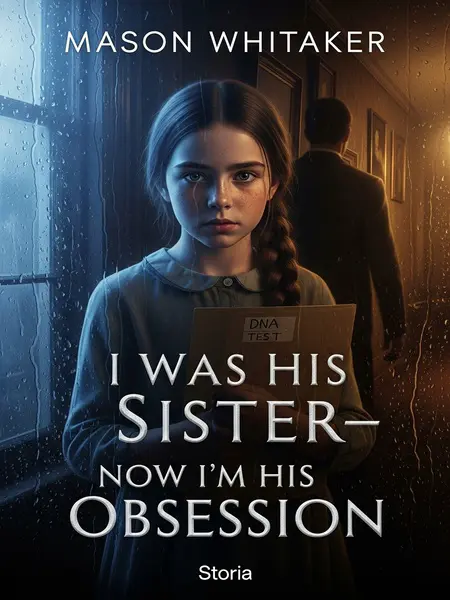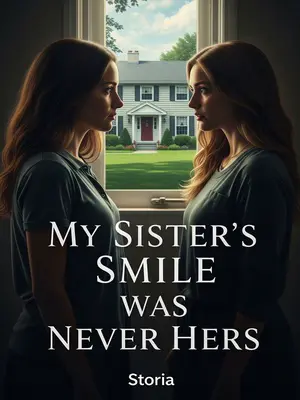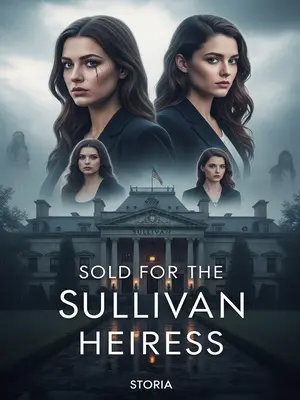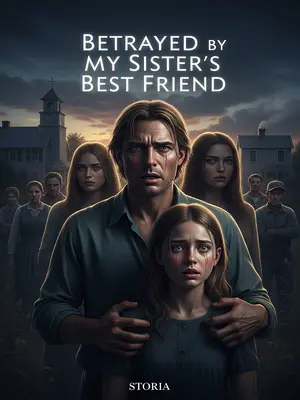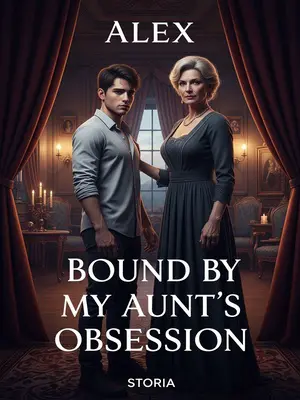Chapter 3: Finding My Real Mother
The summer before high school, I used the excuse of summer camp to go find my biological mother.
I told Mrs. Whitaker I’d won a scholarship to a science camp out of state. She barely glanced up from her phone as she signed the permission slip. I packed my bags and left, heart pounding with hope and fear.
Mason and I hadn’t been switched at birth.
It was a messy story—one that didn’t fit neatly into hospital records or family trees. But the truth was out there, waiting to be found.
My real mom was a small-time actress, tricked by a scumbag into being his mistress, and accidentally got pregnant.
She was barely out of college, chasing theater dreams. He promised her the world, then vanished as soon as she started showing. She was left with nothing but regrets and a growing belly.
When she gave birth to me, her agent lied and said the baby was stillborn, then dumped me in a nursery.
She was sedated, half-conscious, and by the time she woke up, I was gone. Her agent told her I’d died, that it was better this way. She never stopped searching.
By another twist of fate, a human trafficker disguised as a cleaning lady stole a baby boy and swapped our ID bracelets.
It was chaos in the maternity ward that night—a blackout, alarms blaring, nurses running everywhere. The cleaning lady slipped in, snatched the baby boy, and left me in his place. No one noticed until it was too late.
And as luck would have it, Mrs. Whitaker went into labor early and had no family with her at the hospital, so no one noticed if she had a boy or a girl.
The paperwork was rushed, the nurses overworked. Mrs. Whitaker was alone, exhausted, and when they handed her a baby—me—she never questioned it. The tags were switched, the records a mess. It was a perfect storm of mistakes.
And that’s how I was mistakenly brought home by the Whitakers.
It was a story no one would believe if not for the DNA tests. Sometimes I wondered if fate just liked to mess with people.
That’s also why I was never kicked out of the Whitaker family.
Legally, I was their daughter. Emotionally, I was something else—a reminder of everything they’d lost and found. They kept me out of obligation, maybe even out of guilt.
In my previous life, I hadn’t had time to find my real mom before I heard she had died by suicide after a long battle with depression.
The news hit like a punch to the gut. I never got to say goodbye, never got to tell her the truth. Her money went to strangers, her memory faded from the headlines in weeks.
She was a good woman.
Everyone who knew her said so. She volunteered at shelters, donated to orphanages, always left big tips for waitresses. She deserved better than what life gave her.
So, if I wanted to leave the Whitaker family, she was my only hope.
I clung to that thought like a lifeline. If I could find her, maybe I could finally belong somewhere.
I was scared that what happened in my last life would happen again.
Every night, I replayed the worst moments in my mind—locked doors, whispered threats, the feeling of being utterly alone. I couldn’t let history repeat itself.
I was also afraid Mason might suddenly regain memories of his past life, just like me.
Sometimes, I’d catch him staring at me, his eyes dark and searching. I wondered if he remembered, if he knew what I was trying to do. The thought kept me up at night.
It wasn’t hard to find my biological mom. She was now a C-list celebrity named Rose Avery.
Her face was on billboards downtown, smiling out from toothpaste ads and local theater posters. She wasn’t famous, but she was known—enough that I could track her down with a few phone calls.
Using my status as the Whitaker daughter, I managed to meet her easily.
I called her agent, dropped the Whitaker name, and suddenly doors opened. We met in a cozy café, sunlight streaming through the windows. She looked just like me—same eyes, same nervous smile.
I told her everything that had happened back then and took her to do a DNA test.
She listened in stunned silence, her hands trembling around her coffee cup. When I showed her the paperwork, she broke down, tears streaming down her cheeks. We went to the clinic together, holding hands like strangers and family all at once.
...
My real mom hugged me and cried for a long time.
We sat in her tiny apartment, the walls covered in playbills and photos from old shows. She held me close, sobbing into my hair. I felt her heart racing, her arms shaking with relief and regret.
She said she often dreamed of a little girl calling out to her for help, so she’d always done charity work, praying for her “departed” daughter.
She told me about the nightmares—the ones where she heard a child’s voice in the dark, begging for rescue. She donated to every children’s charity she could find, hoping it would bring her peace. Now, she said, maybe the dreams would finally stop.
Luckily, we found each other in this life.
We sat together for hours, talking about everything and nothing. She made me grilled cheese sandwiches and told me stories from her theater days. For the first time in years, I felt safe.
“Mom, this is the money I’ve saved over the past few years. There’s about three hundred thousand dollars in this account.”
I slid the envelope across the table, my hands sweating. It wasn’t much by Whitaker standards, but it was everything I had. Would she take it? Would she understand?
Rose Avery wiped her tears, surprised, and pushed the bank card back to me. “Emmy, what’s this for?”
She looked at me like I’d grown a second head. Her voice was gentle but firm—she didn’t want charity from her own daughter. I smiled, trying to reassure her.
“Mom, this isn’t the Whitaker family’s money.”
I wanted her to know—I wasn’t here to buy her love or fix the past with someone else’s fortune. This was mine, earned penny by penny.
“I’ve been studying finance on my own these past years, quietly freelancing as an investment consultant for small companies and earning some money.”
I showed her spreadsheets and emails, proof that I wasn’t making it up. She stared at the numbers, her eyes wide with pride and disbelief. My heart soared.
“I want to start a company in your name.”
I explained my plan—a small investment firm, just the two of us to start. She listened, nodding slowly, hope blooming in her eyes.
In my previous life, before the Whitakers found Mason, they’d been grooming me as their heir.
I remembered the endless lessons, the business dinners, the way Dad would quiz me on market trends over breakfast. It was exhausting, but it taught me everything I needed to know.
So while I was in school, I also had private tutors teaching me business skills.
I spent weekends learning to read balance sheets, practicing elevator pitches, memorizing the names of every CEO in the city. By the time I was fifteen, I knew more about mergers than most adults.
By the time Mason came home, I’d just turned eighteen and was already known as an investment prodigy.
The local paper ran a feature on me—“Maple Heights’ Youngest Financial Whiz.” People whispered about my skills at country club brunches. I was on track to take over the family empire, until Mason appeared.
In this life, I used the contacts from my memories to reach out to many potential clients anonymously.
I dug up old business cards, sent carefully worded emails, pitched myself as a mysterious consultant with a proven track record. Most ignored me, but a few took the bait.
After a few successful investments, my clients let down their guard and paid me high consulting fees.
The money trickled in at first, then grew into a steady stream. I reinvested every dollar, building my own little empire behind the scenes.
All the work was done by email, so no one realized I was only fifteen.
I used a fake name, a fake address, even a fake voice on the phone. No one suspected the truth—a teenager running circles around grown men in boardrooms.
But making money this way was limited, and recently someone had started investigating me.
I noticed odd emails, strange phone calls, clients asking too many questions. I knew it was only a matter of time before someone connected the dots.
I needed a trustworthy adult to act as my agent.
I looked at my mom, her eyes still red from crying, and knew she was the answer. Together, we could build something real.
With all the knowledge I had from my previous life, it would be a waste not to go into business.
I wasn’t going to let fear hold me back this time. I had a second chance, and I was going to use it.
Rose trusted me completely.
She signed every form I put in front of her, never once doubting my intentions. She called me her lucky charm, her miracle girl.
With my guidance, we set up a company over the summer break.
We spent long nights drafting business plans, designing a logo, picking out office furniture from Craigslist. It was exhausting, but exhilarating.
Using just a fraction of the contacts and resources from my previous life was enough for now.
I kept most of my secrets locked away, only reaching out to the safest clients. Slow and steady—no risks, no mistakes.
